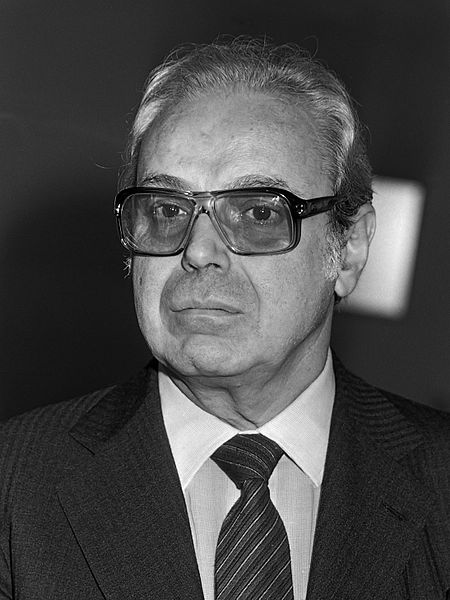 UN: Growth of World Law.
UN: Growth of World Law.
Human Rights: The Foundation of World Law
Eleanor Roosevelt holding poster of the Universal Declaration of Human Rights (in English), Lake Success, New York. November 1949. By FDR Presidential Library & Museum, CC BY 2.0 https://creativecommons.org/licenses/by/2.0, via Wikimedia Commons.
The General Assembly proclaims this Universal Declaration of Human Rights as a common standard of achievement for all peoples and all nations, to the end that every individual and every organ of society, keeping this Declaration constantly in mind, shall strive by teaching and education to promote respect for these rights and freedoms and by progressive measures, national and international, to secure their universal and effective recognition and observance.
Preamble to the Universal Declaration of Human Rights.
In human history, there have been periods when there is a collective response to new challenges; and thus new ways of organizing thought and society. All do not respond at the same speed nor in the same way. Those who have power and wealth due to the old structures are often reluctant to change. Thus, today, some government leaders still see the world in older structural terms – as a collection of relatively independent and autonomous nation-states – a guiding social framework which had served humanity well for several hundred years after the end of the European feudal wars. Yet now, that nation-state framework is not adequate.
Declaration of the Essential Rights of Man.
We already live in a world society bound through communications and economy to a common destiny. Thus there is a need for a universalistic ethic, one that englobes all of humanity. A foundation of this universalistic ethic is the Universal Declaration of Human Rights, proclaimed by the UN General Assembly meeting in Paris, December 1948. As early as the 1945 San Francisco Conference to draft the UN Charter, a proposal to embody a ‘Declaration of the Essential Rights of Man’ was put forward, but it was shelved because it required more detailed consideration than was possible at that time.
Within the framework of the rights set out in the Universal Declaration, there has been a steady growth of world law with human rights conventions and treaty bodies that monitor their application. Among the most important of these conventions are the International Covenant on Economic, Social and Cultural Rights, the International Covenant of Civil and Political Rights, the International Convention on the Elimination of All Forms of Racial Discrimination, the Convention against Torture and Other Cruel, Inhuman or Degrading Treatment or Punishment, and the Convention on the Rights of the Child.

The Universal World Citizen.
Human rights are universal because the subject of human rights is the universal world citizen and not the political citizen as defined by state citizenship. Human rights inaugurate a new kind of citizenship, the citizenship of humanity. Human rights gives people the sense that world law belongs to them.
In order to affirm these human rights, there has been a dynamic growth of non-governmental organizations (NGOs) dealing with human rights, a growth involving the expansion of established organizations as well as the birth of many new organizations. NGOs have become indispensable to the human rights movement through their characteristic activities: monitoring, investigation and reporting, lobbying national governments and the UN, educating the public and coming to the defense of individuals when dealing with courts or intergovernmental bodies.
As Javier Perez de Cuellar, then UN Secretary-General, has said:
«Our age which has often been so cruel, can now pride itself on having witnessed the birth of a universal human rights movement. In all walks of life, brave individuals are standing up for their brothers who have been reduced to silence by oppression or poverty. Their struggle has transcended all frontiers, and their weapon is knowledge. Defending human rights today means above all bringing the most secret crimes to light. It means trying to find out and daring to speak out with complete objectivity, something which requires courage and occasionally, even heroism…The United Nations is cognizant that for human rights to be more fully recognized and respected, the awareness and support of all are required.»

Thus NGOs such as the Association of World Citizens are on the frontlines of building a new world society based on human rights.

Presidente, Asociación de World Citizens (AWC).
Cursó Estudios de Relaciones Internacionales en La Universidad de Chicago.
Cursó Estudios en el Programa Especial de Civilización Europea en
La Universidad de Princeton
Here are other publications that may be of interest to you.
Sorry, no posts were found.